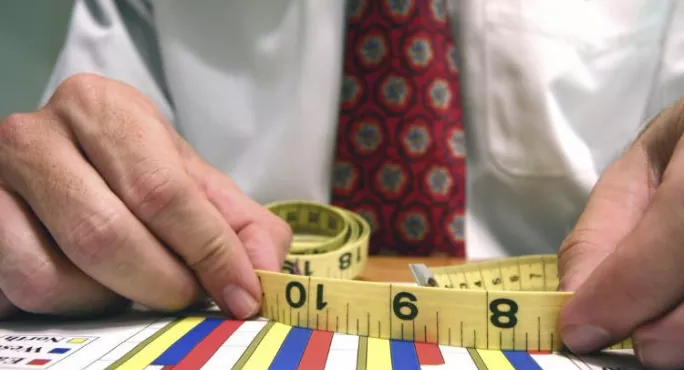- Home
- ‘Soft skills are a vital part of education - and students should be assessed on them’
‘Soft skills are a vital part of education - and students should be assessed on them’

Want to keep up with the latest education news and opinion? Follow TES USA on Twitter and like TES USA on Facebook
From next year world’s most influential education rankings will be reporting on a new domain, Global Competence. The test - administered by the Program for International Student Assessment (Pisa) - will measure analytical and critical thinking skills, as well as intercultural understanding of global issues.
It will also survey students’ attitudes through questionnaires to gauge their openness towards people from other cultures, respect for cultural otherness, global-mindedness and responsibility.
In 2015, Pisa tested another innovative domain, collaborative problem-solving, and, looking ahead, it has an ambitious programme for tackling related new capabilities.
Sitting alongside established subjects - reading, maths and science - Pisa is signaling to the world that, as well as discipline-based knowledge, other capabilities matter too. As Andreas Schleicher, the man in charge of Pisa, puts it: “Ensuring that all people have a solid foundation of knowledge and skills must be the central aim of the post-2015 education agenda.
“This is not primarily about providing more people with more years of schooling; in fact, that is only the first step. It is most critically about making sure that individuals acquire a solid foundation of knowledge in key disciplines, that they develop creative, critical thinking and collaborative skills, and that they build the character attributes such as mindfulness, curiosity, courage and resilience.”
In other words, reading, maths, science, history, art, music and so forth are just a first step in a complex world. They are necessary but not sufficient for anyone learning, living and working in these challenging and fast-moving times where artificial intelligence, mass migration, growing religious intolerance and globalisation are just some of the real-world issues we face.
Across the world Pisa is both revered and feared, so if you like the direction it takes with regard to assessment you are happy. But if you do not, then you may worry that it will usher in ways of working with which you disagree.
Many people - I am one of them - welcome developments like Pisa’s new global competence domain. But others do not, taking issue with its thinking.
‘The language of education is rarely neutral’
Such critical views were well captured in a recent TES article. It reported worries on many fronts including the reliability of measurements, parental perceptions, cultural validity and teacher competence. Interestingly the “soft skills” of the TES headline is a good example of how the language of education is rarely neutral.
For many employers like the CBI who really value attributes such as creativity, perseverance and curiosity the use of the word “soft” sends two unhelpful messages; that they are less valuable than ‘hard’ skills (like maths) and that they are easy to learn (when they are not).
In fact, there is a growing global consensus about the kinds of capabilities which matter: they include perseverance, self-control, resilience, tolerance of diverse opinions, empathy, social competences and creativity.
Psychologists, (Angela Duckworth, Martin Seligman), educational researchers (Lesley Gutman, Ingrid Schon) and economists (such as Nobel laureate James Heckman) all agree that these kinds of capabilities are good for society and good for educational performance.
Mr Heckman suggests that such a consensus of opinion should: “Give pause to analysts and policy makers who rely solely on achievement tests to monitor school performance and school systems. Standardised achievement tests do not adequately capture many skills that matter in life.
There is another compelling reason to embed capabilities into curricula. It’s morally right so to do. As Pisa’s global competence framework makes clear, countries need explicitly to care about human dignity and value cultural diversity as well as wanting to move up the Pisa performance league table.
Which brings us to an important question: can capabilities like those which make up global competence be assessed?
The answer, it turns out is that they can, although measurement is inevitably complex.
Work on assessing capabilities is underway in Asia and North America. A fourteen country study by the Organisation for Economic Cooperation and Development (OECD) into the assessment of creative and critical thinking is taking place right now and similar research is being undertaken by Partnership for 21st Century Learning, Assessment and Teaching of 21 Century Skills, and New Pedagogies for Deeper Learning.
From studies like these we know that we need to think carefully about teaching methods (how useful assessment is for learners); practicalities (how do-able it is for teachers in busy classrooms); and various technical issues (being sure results are reliable, valid and fair).
Assessing capabilities is harder than assessing subjects and the evidence base is much less well-formed. But across the world there are promising practices.
In Victoria in Australia it is now mandatory not just to teach capabilities such as critical thinking and creativity and ethical understanding, but also to assess students’ progress in these areas. They lead the way here.
For more than a hundred years in much of the world we have focused on teaching and assessing disciplinary knowledge in schools. Now we need to focus on capabilities as well.
While this may not necessarily come naturally to all teachers and may even be resisted by some, it is vital work.
Professor Bill Lucas is director of the Centre for Real-World Learning at the University of Winchester and an international adviser to the Mitchell Institute. He is the author of many books including, with Guy Claxton, Educating Ruby: What our children really need to learn. He tweets at @LucasLearn.
Keep reading for just £1 per month
You've reached your limit of free articles this month. Subscribe for £1 per month for three months and get:
- Unlimited access to all Tes magazine content
- Exclusive subscriber-only stories
- Award-winning email newsletters



